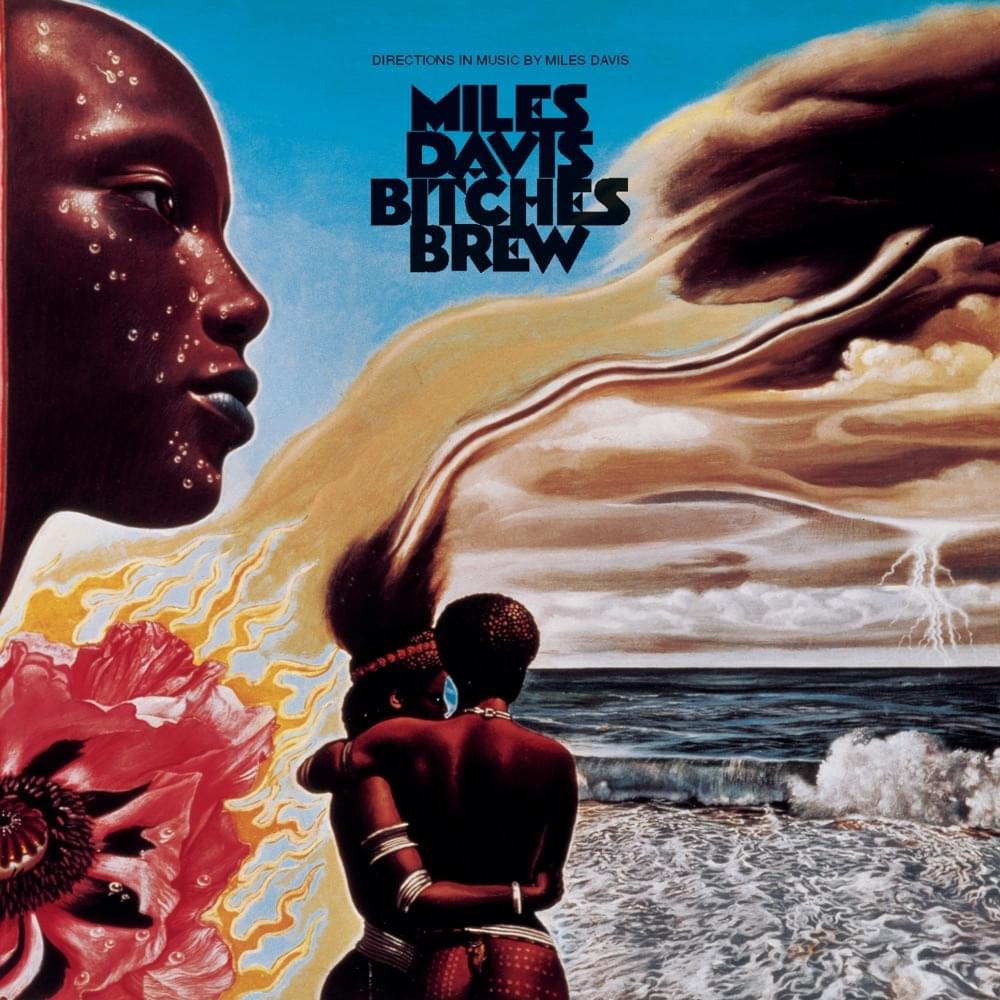Bitches Brew
Miles Davis
Columbia
GP26
1970

"Bitches Brew", released in 1970, is one of Miles Davis’s most groundbreaking and influential albums, widely regarded as the cornerstone of jazz fusion. With this double LP, Davis shattered the boundaries between jazz, rock, funk, and avant-garde music, creating a new musical language that was as radical as it was visionary. The album marked a dramatic departure from traditional jazz forms—abandoning fixed chord progressions, embracing electric instruments, and layering complex rhythms into sprawling, improvisational soundscapes. It was a bold experiment, and it changed the direction of modern music.
The recording sessions, which took place in 1969, featured a large ensemble of talented musicians, including Wayne Shorter (soprano sax), Joe Zawinul and Chick Corea (electric piano), John McLaughlin (guitar), Dave Holland (bass), and Jack DeJohnette (drums), among others. Davis instructed his musicians with minimal written material, encouraging spontaneous creation and group interaction. Producer Teo Macero played a crucial role in shaping the final product by editing, looping, and splicing tapes—techniques that were more common in rock or electronic music at the time. The result was a sonically rich and chaotic masterpiece that defied genre and conventional structure.
Tracks like "Pharaoh’s Dance" and the title piece "Bitches Brew" are long, hypnotic journeys—layered with polyrhythms, eerie textures, and shifting moods. Rather than focusing on melody or harmony, the music evolves organically, drawing the listener into a swirling, immersive atmosphere. The album’s abstract nature and electric intensity alienated some jazz purists, but it also attracted a younger, rock-oriented audience, earning Davis a new following and further cementing his status as an innovator.
In retrospect, Bitches Brew was not just an album—it was a cultural statement. Released at the height of the counterculture movement and amid political upheaval, the music echoed the chaos and experimentation of the time. It challenged the norms of not only jazz but of popular music as a whole. Decades later, its influence can be heard across genres—from progressive rock and funk to hip-hop and electronic music. Bitches Brew remains one of the most daring and influential recordings in the history of 20th-century music, a testament to Miles Davis’s fearless creativity and his refusal to stand still.